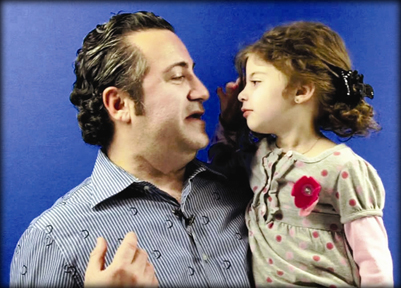No more excuses, please…
By Lionel Wijesiri
I love listening to excuses, because those are really imaginative,
and so ingenious. They are like cell phones searching for a signal - as
they cast about for an appropriate loophole to let them off the hook. As
Benjamin Franklin wrote in his autobiography, “So convenient a thing is
it to be a reasonable creature, since it enables one to find or make a
reason for everything one has a mind to do.”
|

There is no excuse not to find a space of one hour per day
to be a companion to your child. |
With a loophole, we’re not mindfully making an exception, but looking
for a justification that excuses us from sticking to a particular bit of
work or habit. If we can spot loopholes, we can perhaps resist invoking
them, and do a better job of keeping a good habit.
There’s an old proverb that goes, “If you don’t want to do something,
one excuse is as good as another.” In other words, if you’re not
purposely doing something, what does it matter why? Excuses would not
make any sense.
Common excuses
I recently called a few of my friends for a list of the most common
excuses for not making things happen. The response was fine.
1. You’ve already got plans. This only really works on people who
won’t ask what you’re doing.
2. You’re shattered from [insert tiring activity]. Whether you
exaggerate how late you got in last night or how badly you slept, this
is an excuse.
3. You forgot about that important family meal. It’s pretty difficult
to argue with this excuse. Whether it’s that Aunt you haven’t seen for
years or that Uncle who’s visiting from Australia, just make sure it’s a
family member you actually have with you.
4. You’ve just been called into office. No one can argue with the
urgent work at office.
5. You’ve contracted an illness. Flu, fever, body ache! This is not
arguable nor require any further detail.
6. You’ve got to wait at home until someone comes. Best paired with
“I’ll come as soon as my wife comes”, which works wonders, leaving it in
your hands to decide when your wife should arrive.
7. Ignore calls/messages/efforts to contact you from the inviter.
Very easy to carry out, requires little or no effort on your part, just
the ability to ignore a ringing phone. This then leads to the very easy
follow up of “I would’ve come had I known, annoyed I left my phone off.
Question of integrity
Humour apart, excuses are dysfunctional, disabling, and destructive -
yes, destructive. Excuses replace results and accomplishments, thus
creating the question of integrity.
Let’s say you are the parent of a teenager who always makes an excuse
for why he or she is late, doesn’t get homework or chores done, and so
on. What level of trust would you have for that person? Little, I
suspect, because you are anticipating another excuse instead of the
fulfillment of the activity.
But not all excuses are external in nature, meaning they affect
others. Some excuses affect you.
For example, are you making excuses for your weight and fitness
levels? I am too busy, the weather is unpleasant, I am too tired, and on
it goes. Accepting a less-than-healthy condition for your precious body
- overweight, poor eating habits, unfit - is inexcusable.
Or, you have not applied for that new job. Fear and excuses will not
help you progress to new opportunities. There are many other examples,
but you get the point.
Excuses limit your success because, if you say them often enough,
they become self-fulfilling prophecies - like a sales rep satying that
no one wants to buy because the price of the product is too high - well,
before you know it, the rep believes it. The results? Dismal sales. Or I
can’t lose weight! Before you know it, this becomes “truth.”
Power of apology
I’ve been thinking about the power of apology lately. I’ve been
noticing that the people for whom I have the most respect don’t hesitate
to say “I was wrong,” or “I’m sorry I…” On the other hand, the people I
have the hardest time respecting seem constitutionally unable to take
responsibility for their own mistakes. Even when they try, it comes out
sounding like “I may have been partly at fault, but…” or “It may seem
that I was wrong, but…” They just can’t do it.
Apologising freely requires a good deal of courage. It’s not
comfortable for any of us to admit an error, or to acknowledge that
something we’ve done has caused others harm or inconvenience.
So when someone truly apologises, we know he or she is putting
honesty and honour above personal comfort or self-protection. It’s
inspiring.
It is not only good to admit you are wrong when you are, but also it
can also be a powerful tool for leaders - actually increasing legitimacy
and, when practised regularly, can help build a culture that actually
increases openness to change and many other positive features of public
or organisational life.
Followers look to see whether a leader is courageous before they’ll
fully accept that person’s leadership. If they see courage (and taking
full responsibility for actions and admitting and apologising for
mistakes are two of the five key indicators of courage), it feels safe
to ‘sign up.’ People need courageous leaders to feel there’s someone to
make the tough calls and to take responsibility for them - they need to
know that the buck truly does stop with the leader.
 With a courageous leader, people feel protected - not that they’re
helpless, but they know the person in charge really has their back. And
courage begets courage: the followers are more likely to make their own
tough decisions and take responsibility for them when you model that
behaviour. You have their backs - so they’re much more likely to have
yours. With a courageous leader, people feel protected - not that they’re
helpless, but they know the person in charge really has their back. And
courage begets courage: the followers are more likely to make their own
tough decisions and take responsibility for them when you model that
behaviour. You have their backs - so they’re much more likely to have
yours.
Tips
Because so many of us have a hard time apologising, I thought it
might be helpful to give you few tips.
I’m sorry: this is the core of a genuine apology. “I’m sorry.” or “I
apologise.” It’s the stake in the ground to communicate that you truly
regret your behaviour and wish you had acted differently. No apology is
complete without this.
Don’t beat about the bush: Once you said what you regret about your
actions or words, don’t water it down with excuses. That can blow the
whole thing.
Say how you’ll fix it. This seals the deal. If you genuinely regret
your words or actions, you’ll to commit to changing. This needs to be
simple, feasible and specific. “I’m sorry we haven’t gotten back to you
about your security deposit.
We’ll have an answer to you by this Friday.” Do it. I know some
people who don’t have a hard time apologising, but seem to have a hard
time following through on their apologies. If you apologise and say
you’re going to behave differently, and then don’t - it’s actually worse
than not having apologised in the first place.
So there you have it. Next time you’re clearly in the wrong, take a
deep breath, put aside your self-justification, your excuses, your
blame, your defensiveness, and simply apologise. |

